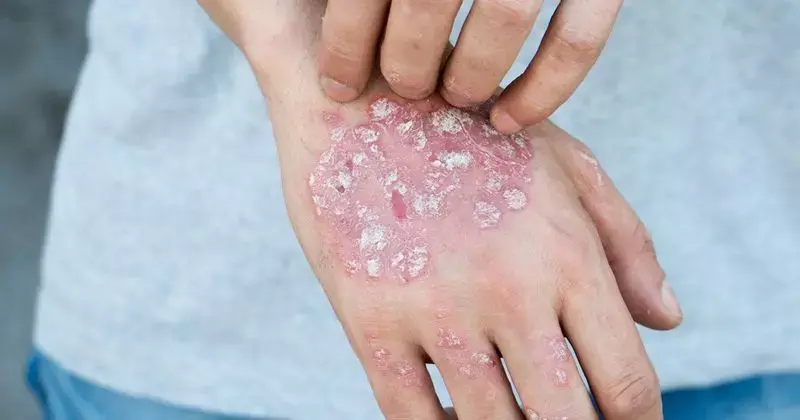- Home
- Medical news & Guidelines
- Anesthesiology
- Cardiology and CTVS
- Critical Care
- Dentistry
- Dermatology
- Diabetes and Endocrinology
- ENT
- Gastroenterology
- Medicine
- Nephrology
- Neurology
- Obstretics-Gynaecology
- Oncology
- Ophthalmology
- Orthopaedics
- Pediatrics-Neonatology
- Psychiatry
- Pulmonology
- Radiology
- Surgery
- Urology
- Laboratory Medicine
- Diet
- Nursing
- Paramedical
- Physiotherapy
- Health news
- Fact Check
- Bone Health Fact Check
- Brain Health Fact Check
- Cancer Related Fact Check
- Child Care Fact Check
- Dental and oral health fact check
- Diabetes and metabolic health fact check
- Diet and Nutrition Fact Check
- Eye and ENT Care Fact Check
- Fitness fact check
- Gut health fact check
- Heart health fact check
- Kidney health fact check
- Medical education fact check
- Men's health fact check
- Respiratory fact check
- Skin and hair care fact check
- Vaccine and Immunization fact check
- Women's health fact check
- AYUSH
- State News
- Andaman and Nicobar Islands
- Andhra Pradesh
- Arunachal Pradesh
- Assam
- Bihar
- Chandigarh
- Chattisgarh
- Dadra and Nagar Haveli
- Daman and Diu
- Delhi
- Goa
- Gujarat
- Haryana
- Himachal Pradesh
- Jammu & Kashmir
- Jharkhand
- Karnataka
- Kerala
- Ladakh
- Lakshadweep
- Madhya Pradesh
- Maharashtra
- Manipur
- Meghalaya
- Mizoram
- Nagaland
- Odisha
- Puducherry
- Punjab
- Rajasthan
- Sikkim
- Tamil Nadu
- Telangana
- Tripura
- Uttar Pradesh
- Uttrakhand
- West Bengal
- Medical Education
- Industry
Guselkumab tied with early improvement in psoriasis associated arthritis

Guselkumab associated with early improvement of joints and reduced progression of psoriatic arthritis suggests a new study published in the Clinical Rheumatology.
Assess relationship between earlier clinical improvement and radiographic progression (RP) over 2 years in guselkumab-treated patients with active psoriatic arthritis (PsA).
Post hoc analyses combined data from DISCOVER-2 biologic-naïve adults with active PsA randomized to either guselkumab 100 mg every 4 weeks (Q4W) or guselkumab at W0, W4, then Q8W. Correlations (Spearman’s coefficient) between baseline disease parameters and total PsA-modified van der Heijde-Sharp (vdH-S) score were examined. Repeated-measures mixed models, adjusted for known RP risk factors, assessed the relationship between Disease Activity Index in PsA (DAPSA) improvement, DAPSA improvement exceeding the median or the minimal clinically important difference (MCID), or DAPSA low disease activity (LDA) at W8 and RP rate, assessed by change from baseline in vdH-S score through W100.
Results
Baseline age, PsA duration, CRP level, and swollen joint count, but not psoriasis duration/severity, weakly correlated with baseline vdH-S score. Elevated baseline CRP (parameter estimate [β] = 0.17–0.18, p < 0.03) and vdH-S score (β = 0.02, p < 0.0001) significantly associated with greater RP through W100. Greater improvement in DAPSA (β = -0.03, p = 0.0096), achievement of DAPSA improvement > median (least squares mean [LSM] difference: -0.66, p = 0.0405) or > MCID (-0.67, p = 0.0610), or DAPSA LDA (-1.44, p = 0.0151) by W8 with guselkumab significantly associated with less RP through W100. The effect of W8 DAPSA LDA on future RP was strengthened over time among achievers vs. non-achievers (LSM difference enhanced from -1.05 [p = 0.0267] at W52 to -1.84 [p = 0.0154] at W100).
In guselkumab-treated patients with active PsA, earlier improvement in joint symptoms significantly associated with lower RP rates through 2 years, indicating blockade of the IL-23 pathway may modify long-term disease course and prevent further joint damage.
Reference:
Mease, P.J., Gottlieb, A.B., Ogdie, A. et al. Earlier clinical response predicts low rates of radiographic progression in biologic-naïve patients with active psoriatic arthritis receiving guselkumab treatment. Clin Rheumatol (2023). https://doi.org/10.1007/s10067-023-06745-y
Keywords:
Guselkumab, associated, early, improvement, joints, reduced, progression ,psoriatic,arthritis, Mease, P.J., Gottlieb, A.B., Ogdie, Clinical Rheumatology
Dr. Shravani Dali has completed her BDS from Pravara institute of medical sciences, loni. Following which she extensively worked in the healthcare sector for 2+ years. She has been actively involved in writing blogs in field of health and wellness. Currently she is pursuing her Masters of public health-health administration from Tata institute of social sciences. She can be contacted at editorial@medicaldialogues.in.
Dr Kamal Kant Kohli-MBBS, DTCD- a chest specialist with more than 30 years of practice and a flair for writing clinical articles, Dr Kamal Kant Kohli joined Medical Dialogues as a Chief Editor of Medical News. Besides writing articles, as an editor, he proofreads and verifies all the medical content published on Medical Dialogues including those coming from journals, studies,medical conferences,guidelines etc. Email: drkohli@medicaldialogues.in. Contact no. 011-43720751


